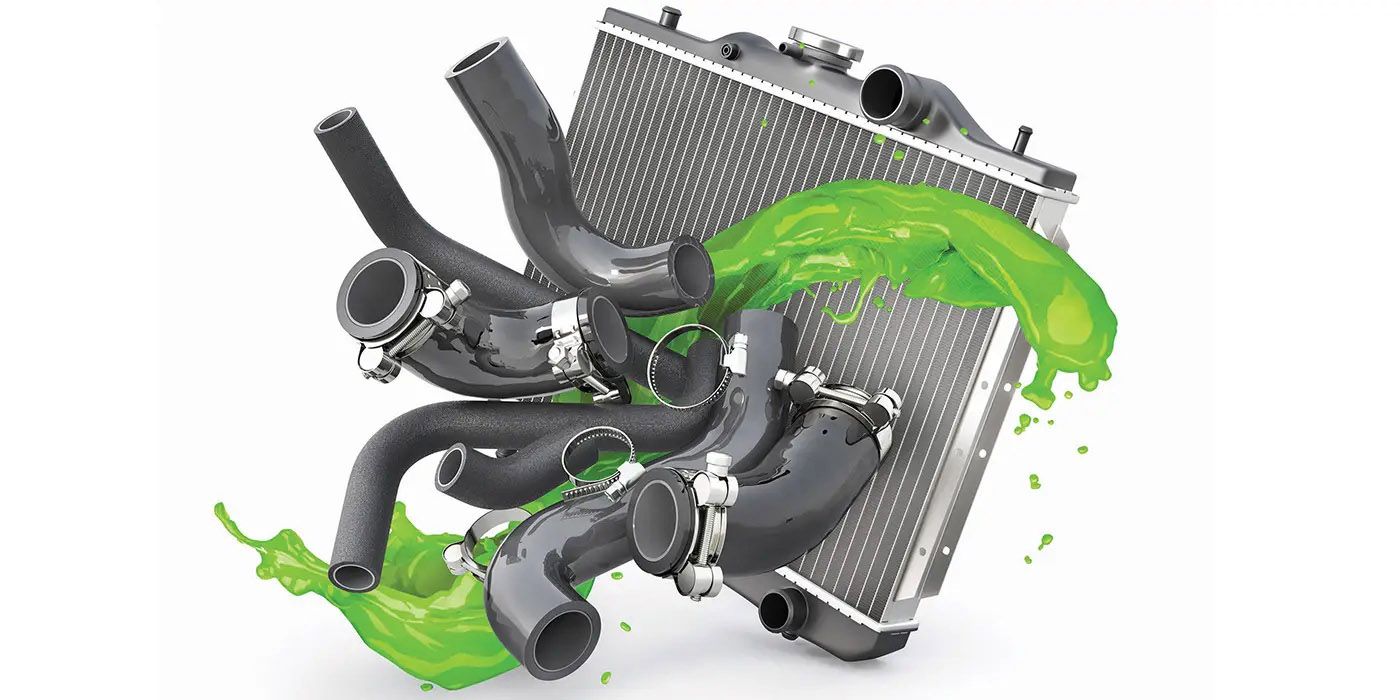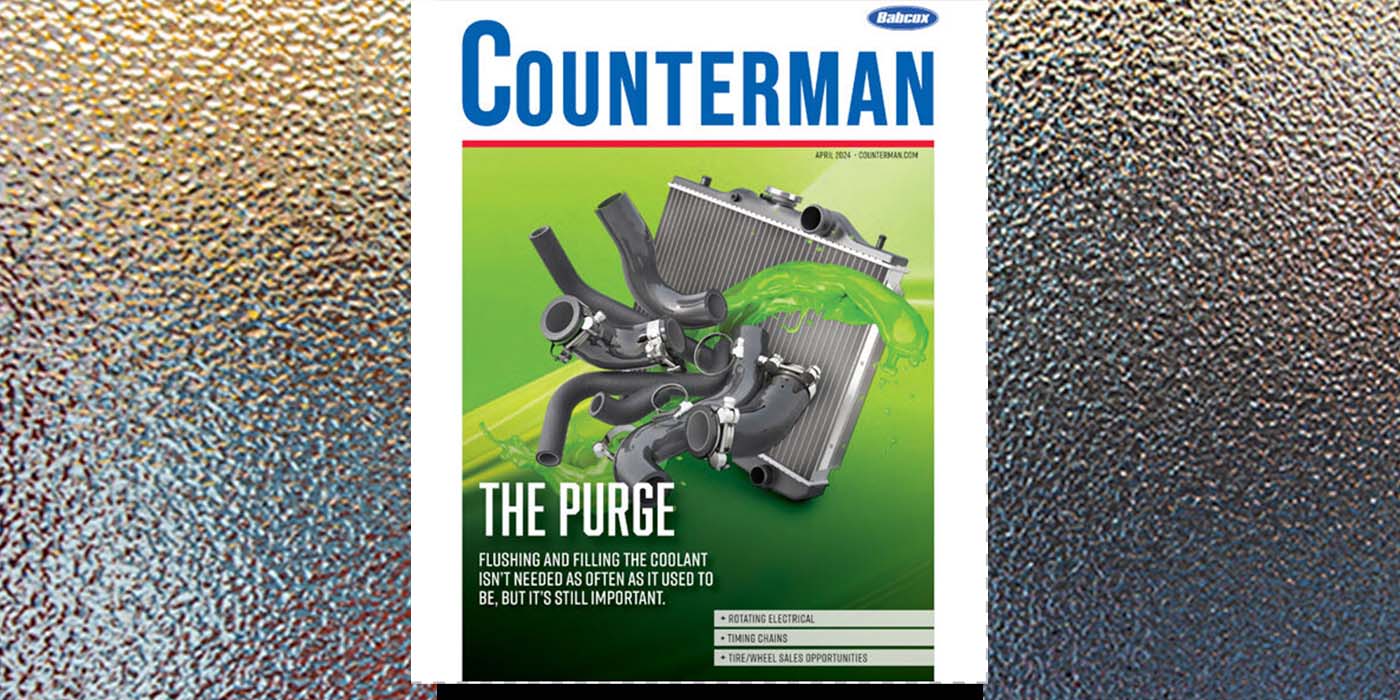It’s a fact of shop life: dealing with various parts supplier sales representatives is a day-to-day process for an independent shop owner. Sometimes, the relationship between a parts rep and shop owner is good – although it can often be better. Sometimes issues pop up that can’t be resolved and other times things go better than we expected. Considering that shop owners must deal, on an hourly basis, with sales representatives ranging from persistent telemarketers to shy kids soliciting donations for their high school yearbooks, it’s a miracle that they have the time and patience to chat with the outside sales rep from his or her local parts store.
ESTABLISH RELEVANCY
Considering all the things tugging at a shop owner’s time, it can be awfully tough for a neophyte outside sales rep get his foot in the door, let along get any face-to-face time with the owner. Over the years, I’ve been harassed by sales representatives hawking everything from aluminum siding to diamond futures. Quickly terminating any sales presentation by saying, "No, I’m not interested," becomes a necessary and automatic response for any successful shop owner. So, yes, it’s tough to get a shop owner’s attention.
In my estimation, the key component for making headway with any automotive service business is to establish your relevancy to the business. To illustrate, only the most trusting shop owners would buy an unseen product from an unknown person operating from an unknown address (which is what telemarketers ask a shop owner to do at least several times per day). As for the relevancy of local solicitations, a shop owner must often choose between spending his advertising budget for "good will" signage at the local baseball field or for a year’s worth of eighth-page ads in the local community newspaper. Either case is worthy, but the newspaper ad might give a broader exposure and therefore prove more relevant to growing his business. Sure, a friend, relative, neighbor or businessperson soliciting for the local softball team might be disappointed, but the shop owner surely can’t say "yes" to all options.
Tool and equipment sales reps must also establish relevancy to the future of the business. Unfortunately, this usually amounts to saying "no" to current presentations while leaving the door open for future needs. Jobber sales reps face similar issues in establishing relevancy. No, the shop might not need six drums of 5-30w motor oil today, but the shop might need the oil next month and it might need it very quickly if its car count picks up.
The same question – about which shop owners often mull for months (perhaps years) – applies to capital equipment purchases. When business volume suddenly generates enough potential return on investment to make the purchase profitable, the shop owner will likely call the sales rep who has established the relevancy of his product to the owner’s needs and the shop’s future requirements.
WHEN TO MAKE A CALL
Yes, there are good times and bad times to make sales presentations. The good times are when the shop is operating smoothly, the telephone is quiet and most of the vehicles have been dropped off in the morning by their owners. Conversely, the worst time for a sales rep’s visit is on Monday morning because shops are usually inundated by towed-in vehicles and catastrophic failures from the weekend. Moreover, most of the complaints and comebacks seem to come in on Monday mornings.
Tuesdays, Wednesdays and Thursdays always seem to run smoother, with all of the pieces falling in place. By Tuesday, most shops have their schedules in place, the jobs are assigned to the technicians and the parts are ordered (hopefully) well in advance. Wednesday rolls along, then by Thursday, the tempo begins to pick up because, if major jobs aren’t nearing completion, they can turn into a crisis by Friday.
Speaking of which, Fridays are usually as chaotic as Mondays, but for the opposite reasons. Unfortunately, customers need their vehicles for weekend trips and many parts have arrived either late or not at all. "Mrs. Jones – Engine Tune Up," for example, has turned into a major engine rebuild or the new alternator the shop installed on Wednesday has burned up by three o’clock, Friday afternoon. You get the picture. Mondays are "See you later" days and Fridays are, "Just don’t stand there, get me some parts!" days.
SALES ETIQUETTE
Every shop buys from more than one outside sales representatives’s store or WD because no single store has the quality, quantity or availability of the parts a shop needs at any single point in time. In years past, I’ve had as many as four outside sales reps visit the shop, each several times per week. Inevitably, I’ve had two reps, face-to-face, in the shop at the same time. Of course, this situation is inherently embarrassing for everybody concerned. The more astute sales rep will say, "Excuse me, I’ll come back a little later." In my shop, that professional act alone will later be rewarded with a sale.
In contrast, I’ve been caught between sales reps battling for territory and accounts. It’s not a comfortable position for me, I assure you. Their hostility inevitably spills over into my business routine, primarily because neither will yield an inch of ground to further the interests of common civility.
THE PITCH
The crunch, so to speak, is always a complaining attitude of "Gee, why are you buying from my competitor when I’m the one going out of my way to help you?" The answer is always that the competitor is also going out of his way and does just as good of a job.
In years before shops joined distributor networks, I used to divide my stocking inventories between visiting outside sales reps. I would then buy my on-demand purchases from stores that didn’t provide me with inventory. I always tried to give each rep his share of my wholesale "pie" because, in a high-volume shop, an owner needs more than one parts supplier simply as a matter of survival. Today, due to on-line ordering and electronic inventory management systems, most shops carry minimal inventory. Nevertheless, the same rules of etiquette apply because no shop owner likes to be caught in the middle of a sales battle fought between two competing suppliers.
PRODUCT ISSUES
All other things being equal, most products are purchased because the outside sales rep has a sunny personality. Of course, when the product fails to meet expectations, personality goes by the wayside.
If, for example, a brake friction line begins to develop noise complaint problems, no amount of sales hyperbole or happy talk at the jobber level is going to calm the concerns of the shop’s paying customers.
In my opinion, how product issues are handled is what really separates the rookie from the professional. The rookie always "has a call in" to tech service. The professional starts doing some legwork to see if other shops are having the same problem and if there’s an easy in-field solution to the noise complaints. The rookie claims that, "You’re the only shop having this problem." Don’t tell me that. The professional hammers out the issue with his tech service until he can provide an answer.
Of course, an outside sales rep can’t re-engineer his product, but he can establish his credibility on the issue either by seeking alternative product lines that will solve the complaint or by simply admitting that the issue is out of his hands. I can respect either approach, providing the rep has made a sincere effort to deal with the issue.
Yeah, it’s a tough life being an outside sales rep and I can equally assure any outsider that it’s no piece of cake operating a modern auto repair shop. Auto repair and maintenance has become a highly commoditized and competitive market the past few years. You have to be at the top of your game and expect the same from the outside sales rep. Expect him or her to be very familiar with the product lines and equally familiar with the needs of your shop. Furthermore, expect him or her to perform the job with a sense of honesty, integrity, propriety and business ethics.
Sure, it’s a tough business, but that’s part of working in a twenty-first century technical environment.








